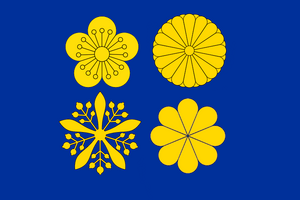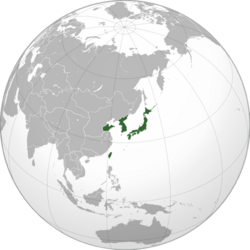Eastern Sun Union: Difference between revisions
Jump to navigation
Jump to search
No edit summary |
No edit summary |
||
| Line 18: | Line 18: | ||
| leader_name = [[Hayashi Ryou]] | | leader_name = [[Hayashi Ryou]] | ||
}} | }} | ||
The '''Eastern Sun Union''', also known as the '''Eastern Union''', or simply the '''ESU''' is a political and economic union of East Asian States. Its four members have a combined population of about 327 million people. Its member states operate under a {{wp|currency union}}, which works using the [[Sun Yen]]. | The '''Eastern Sun Union''', also known as the '''Eastern Union''', or simply the '''ESU''' is a political and economic union of East Asian States. Its four members have a combined population of about 327 million people. Its member states operate under several common laws and regulations, like its {{wp|single market}} economy which establishes a {{wp|currency union}}, which works using the [[Sun Yen]]. Some benefits of ESU citizens include the right work, travel and live freely in any of its member states, own property without a permit within the union, and receive {{wp|medical care}} free of charge whereever in the union they might be. | ||
Revision as of 22:22, 9 May 2021
 Flag of the ESU | |
 Map of Eastern Union member states | |
| Motto | "United as One" 團結一致 |
|---|---|
| Formation | February 15, 1996 |
| Type | Supranational organization |
Region served | East Asia |
Membership | 4 |
President | Hayashi Ryou |
The Eastern Sun Union, also known as the Eastern Union, or simply the ESU is a political and economic union of East Asian States. Its four members have a combined population of about 327 million people. Its member states operate under several common laws and regulations, like its single market economy which establishes a currency union, which works using the Sun Yen. Some benefits of ESU citizens include the right work, travel and live freely in any of its member states, own property without a permit within the union, and receive medical care free of charge whereever in the union they might be.